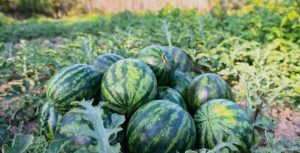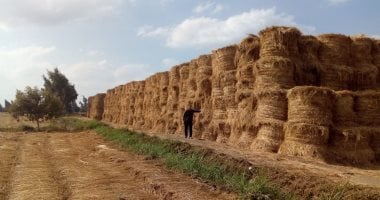Dr. Alaa Azouz, Head of the Agricultural Extension Sector at the Ministry of Agriculture and Land Reclamation, confirmed that the rice straw recycling system is a successful national model for converting waste into economic resources. Azouz added that the experiment proved successful in reducing burning rates and transforming straw into valuable products such as organic fertilizers, unconventional fodder, bioenergy (biogas), as well as wood and paper manufacturing. He emphasized that this year’s plan focuses on turning environmental challenges into investment opportunities by expanding projects that help improve soil fertility and close the fodder gap. Efforts will also include intensifying awareness campaigns for farmers in cooperation with agricultural directorates and the Environmental Affairs Agency, and enforcing legal measures against violators.
It is noteworthy that Al-Sharqia Governorate is one of the largest rice producers, requiring integrated management of the resulting straw quantities through providing approved collection sites, suitable equipment, and supporting youth projects.













Recommended for you
Exhibition City Completes About 80% of Preparations for the Damascus International Fair Launch
Talib Al-Rifai Chronicles Kuwaiti Art Heritage in "Doukhi.. Tasaseem Al-Saba"
Unified Admission Applications Start Tuesday with 640 Students to be Accepted in Medicine
Egypt Post: We Have Over 10 Million Customers in Savings Accounts and Offer Daily, Monthly, and Annual Returns
His Highness Sheikh Isa bin Salman bin Hamad Al Khalifa Receives the United States Ambassador to the Kingdom of Bahrain
Al-Jaghbeer: The Industrial Sector Leads Economic Growth